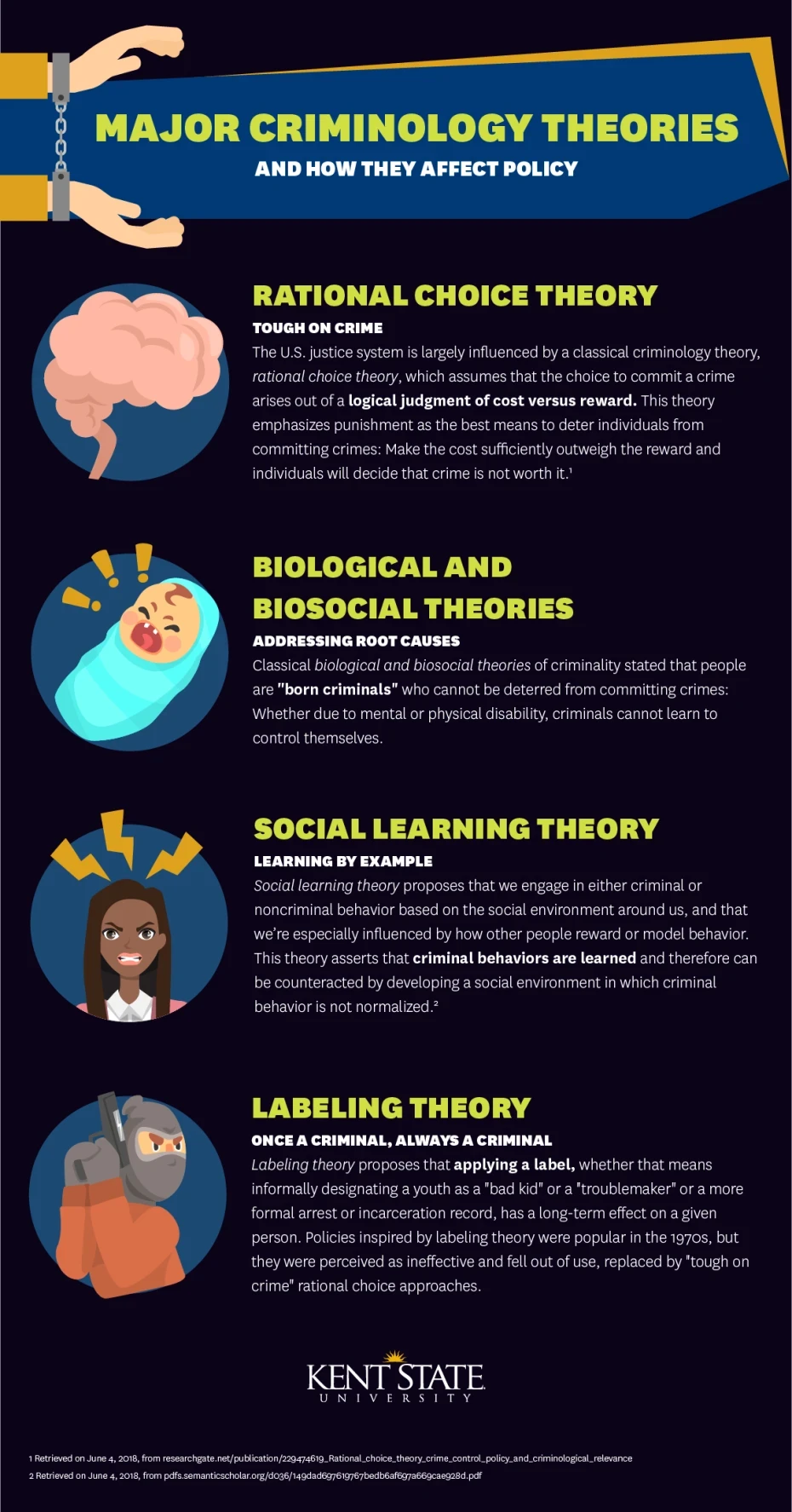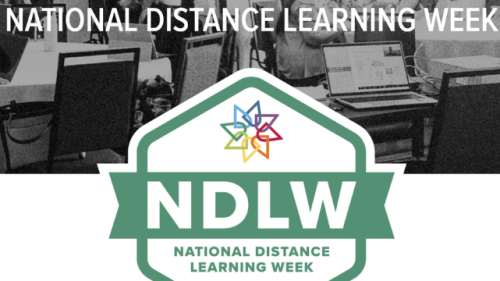What is criminal behavior, and what causes it? How a society answers these fundamental questions plays an essential role in how it responds to crime, from developing crime prevention programs to designing incarceration systems and rehabilitating criminals. As part of this effort, criminologists and experts across related fields such as healthcare, sociology and psychology work toward an understanding of the causes of criminal behavior, both by proposing new theories and testing existing ones.
Each of the following theories has evolved with the advent of more sophisticated technology and the current trend toward examining criminal behavior, and they’ve also been impacted—albeit at a slower pace—by changes in public policy.
Rational Choice Theory: Tough on Crime
The U.S. justice system is largely influenced by a classical criminology theory, rational choice theory, which assumes that the choice to commit a crime arises out of a logical judgment of cost versus reward. This theory emphasizes punishment as the best means to deter individuals from committing crimes: Make the cost sufficiently outweigh the reward and individuals will decide that crime is not worth it.1
On one hand, this seems reasonable, almost obvious. But a number of factors complicate such a simplistic understanding of crime and human nature:2
- Adolescents have immature brains that cannot fully comprehend consequences
- Humans are generally influenced more by their emotions than cold logic
- Individuals who commit crimes often lack information or the perspective to make a sound judgment
In other words, the historical understanding of rational choice assumes a totally rational actor, but humans are never totally rational. Additionally, contemporary theorists suggest that the individuals who would be “scared straight” by punishment are already disinclined to commit crimes. Contemporary criminologists believe that policies based on rational choice theory should have more modest, specific targets and focuses.
But while rational choice theory has evolved on the academic side, policy crafted according to its dictates has lagged behind. Examples of policies related to outdated interpretations of rational choice theory include:
- Three-strikes laws
- Extreme “tough on crime” punishments
- Placing juvenile offenders in adult facilities
Biological and Biosocial Theories: Addressing Root Causes
Classical biological theories of criminality stated that people are “born criminals” who cannot be deterred from committing crimes: Whether due to mental or physical disability, criminals cannot learn to control themselves.
In contrast, contemporary biological theories emphasize biosocial causes rather than strictly natural ones.
Some modern criminologists do consider genetic predispositions (including testosterone and IQ levels), but they look at the interplay between these factors and a person’s social environment rather than focusing on seemingly immutable traits. By foregrounding social factors, these criminologists theorize, we can mitigate risks of criminal behavior prompted by biological factors.3
Policies based in this theory often start at the root of the problem—for example:
- Educating parents-to-be in high-risk categories (such as single parents, teenagers and low-income individuals) to avoid circumstances that might impede healthy child development
- Teaching children conflict resolution alternatives to violence in programs such as Second Step
Social Learning Theory: Learning by Example
Social learning theory proposes that we engage in either criminal or noncriminal behavior based on the social environment around us, and that we’re especially influenced by how other people reward or model behavior. This theory asserts that criminal behaviors are learned and therefore can be counteracted by developing a social environment in which criminal behavior is not normalized.4
This theory is most frequently used as the basis for supportive, less punitive programs that serve juveniles, such as:
- The School Transitional Environment Program, which helps students entering middle school connect with schools, classmates and teachers who model more positive behavior than they encountered in their previous environments
- Communities That Care, which takes a preventative approach inspired by public health outreach, bringing a community together to support at-risk juveniles
- Teens, Crime and the Community and Community Works (TCC/CW), a multifaceted program that offers classroom curricula on topics such as conflict resolution, drugs and gun violence; this program uses positive role models such as teachers and police officers to deliver classes and puts these lessons to work through projects in the community
Labeling Theory: Once a Criminal, Always a Criminal
Labeling theory proposes that applying a label, whether that means informally designating a youth as a “bad kid” or a “troublemaker” or a more formal arrest or incarceration record, has a long-term effect on a given person. Policies inspired by labeling theory were popular in the 1970s, but they were perceived as ineffective and fell out of use, replaced by “tough on crime” rational choice approaches.
Contemporary research has shown evidence of the profound impact that labeling can have on individuals, as formal labeling has been shown to have a measurable effect on juveniles’ future education and employment opportunities—repercussions that can lead to continued criminal behavior.5
Policies inspired by labeling theory thus focus on reducing negative repercussions of prior labels and providing opportunities for new growth. Examples include:
- “Ban the box” policies, which forbid employers from asking applicants about their criminal backgrounds, which evidence indicates reduces recidivism
- Wisconsin’s Inviting Convicts to College program and similar programs that prepare individuals with criminal pasts to succeed in college
- Civil citation laws, which provide a less stigmatizing alternative to formal arrests and the court system
Contributing to Criminal Justice
Through these and other criminology theories, experts in many related fields, such as psychology, law enforcement and public administration, collaborate to create a safer, more just society. Whether you currently work as a criminal justice professional or are looking to enter the field, learn how Kent State University’s online Master of Arts in Criminology and Criminal Justice can equip you to make a difference in the world through research, corrections, security and policy.
Sources:
- Retrieved on June 4, 2018, from researchgate.net/publication/229474619_Rational_choice_theory_crime_control_policy_and_criminological_relevance
- Retrieved on June 4, 2018, from scholarlycommons.law.northwestern.edu/cgi/viewcontent.cgi?article=6670&context=jclc
- Retrieved on June 4, 2018, from researchgate.net/publication/261595842_Policy_Implications_of_Biosocial_Criminology_Crime_Prevention_and_Offender_Rehabilitation
- Retrieved on June 4, 2018, from pdfs.semanticscholar.org/d036/149dad697619767bedb6af697a669cae928d.pdf
- Retrieved on June 4, 2018, from researchgate.net/publication/319256250_Policy_Implications_of_Contemporary_Labeling_Theory_Research





